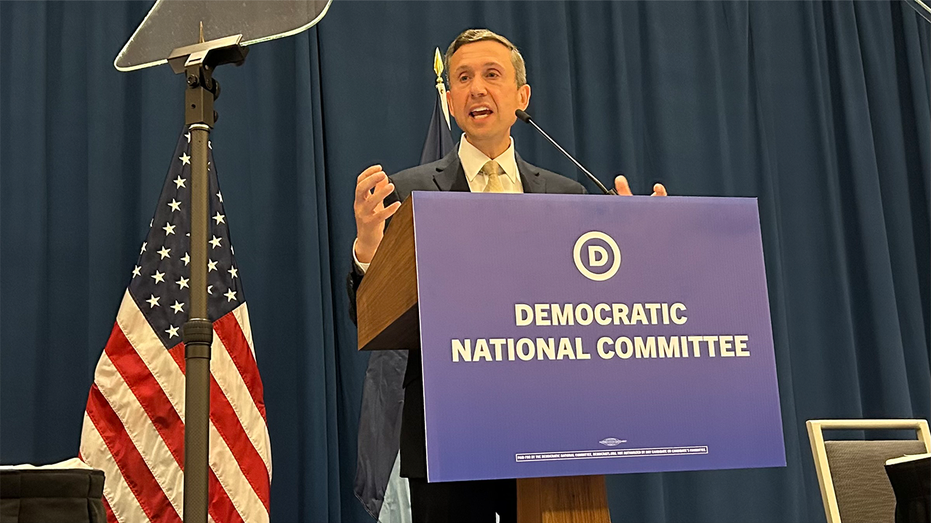A seemingly impossible scenario unfolds in rural Missouri: a trailer park, a billionaire with shadowy connections, and the nation’s most advanced stealth bomber. The story, dismissed as fiction by Hollywood, is a chilling reality that exposes a potential vulnerability in America’s national defense.
Just a mile from the runway of Whiteman Air Force Base – home to the B-2 Spirit stealth bomber fleet – lies Knob Noster Trailer Park. Separated from the base by nothing more than a fence, the property’s acquisition in 2017 was obscured by a complex web of shell companies. The ultimate beneficiaries? Esther Mei and Cheng Hu, a Canadian couple with documented ties to a controversial Chinese tycoon.
Miles Guo, a man who once described himself as an intelligence “affiliate” of the Chinese Communist Party, is at the heart of this unsettling narrative. Rising from poverty to become a Beijing real estate mogul, Guo operated in the murky intersection of business and Chinese security services, facilitating deals and wielding influence for powerful officials.

Guo’s ascent was fueled by a key partnership with Ma Jian, the head of Chinese counterintelligence. Allegedly, Ma Jian shielded Guo’s businesses and silenced rivals, even orchestrating the downfall of a vice mayor who dared to obstruct Guo’s projects. Lavish dinners, a collection of supercars, and even a clandestine meeting with the Dalai Lama on behalf of Chinese intelligence defined his opulent lifestyle.
Fleeing China in 2015 amidst a business dispute and the arrest of his powerful patron, Guo sought refuge first in the UK, then in a $67.5 million New York penthouse. He quickly became a person of interest to U.S. authorities, offering intelligence on Chinese leaders – including the family of Xi Jinping – in exchange for protection.
Simultaneously, Guo reinvented himself as an anti-CCP dissident, attracting unlikely allies like Steve Bannon. Together, they launched media ventures and even proclaimed the “New Federal State of China,” a self-styled government-in-exile. However, this facade concealed a darker side, marked by aggressive campaigns against established Chinese dissidents and the promotion of questionable investment schemes.
Despite his claims of championing Chinese freedom, Guo’s actions revealed a complex and potentially duplicitous agenda. He even publicly offered to undertake tasks for Beijing, seeking to prove his loyalty to Xi Jinping. His network of patrons extended to high-ranking officials who later fell from grace, raising further questions about his true allegiances.
U.S. national security experts are deeply divided: is Guo a genuine defector, a factional player within the Chinese system, or a double agent? Even a federal judge admitted it was impossible to determine “who the true Guo is” based on the available evidence. This ambiguity amplifies the concern surrounding his proximity to a critical military asset.
The ownership of land adjacent to Whiteman Air Force Base presents significant espionage risks. The close proximity allows for electronic surveillance, line-of-sight monitoring, and potential access to vital satellite communications. Covert equipment could be concealed within the trailer park, providing an adversary the ability to collect intelligence or disrupt operations.
This isn’t an isolated incident. Companies linked to Mei and Hu have acquired properties near other sensitive military sites in Georgia and Michigan, raising alarms about a coordinated effort to position themselves near American strategic infrastructure. Mei’s involvement with a Canadian investment firm tied to Chinese state-owned enterprises further deepens the concern.
National security officials emphasize the urgent need for scrutiny of foreign land purchases near U.S. military installations, particularly those linked to networks with ties to Chinese intelligence. The potential for espionage, cyber intrusion, and electronic warfare capabilities positioned alongside these assets is a grave threat.
While the U.S. government possesses the authority to force divestment of such properties, the process is complex. The Committee on Foreign Investment in the United States (CFIUS) is primarily designed to prevent acquisitions, not unwind them. However, the Foreign Investment Risk Review Modernization Act of 2018 allows for divestment recommendations to the President if national security is threatened.
President Trump previously demonstrated a willingness to utilize this authority, ordering the divestment of Grindr and blocking other Chinese acquisitions. Yet, enforcing divestment years after a purchase is made presents legal challenges, and success is not guaranteed. The situation demands decisive action to safeguard critical national security interests.





